How To Tell Stories to Children
Last November, Discovery Museum hosted authors Silke Rose West and Joseph Sarosy to talk about their podcast, teachings, and book entitled, How To Tell Stories to Children as part of our Discovery Museum Speaker Series. I learned so much!
Telling stories to children can be very powerful and can help develop and build relationships with your grandchildren in a fun and playful way. Storytelling engages children’s active imagination and creates a bond between the storyteller and the child.
Joe and Silke shared how easy it can be to become a storyteller with the young children in our lives. They talked about the “storytelling loop,” which can start with a simple observation, maybe something your grandchild saw that day or has been talking about. Joe and Silke gave a wonderful example of an apple tree that your grandchild may have seen that day. After seeing the tree together, you can tell a story about a squirrel living under the apple tree, climbing up the tree, making an apple fall to the ground, and then running down the tree to grab that apple and eat it up! You can use any shared experience as a door to a simple story.
The beauty of this approach to storytelling is that it is intuitive and requires no preparation or planning—you are just in the moment.
Then, the next time your grandchild sees that apple tree, they will remember the story and look at that tree differently, with new eyes.
Storytelling is a rich and dynamic tool that can be used in so many ways. It can be purely playful and funny; it can help work through a conflict or something that upset the child during the day; it can be a story you continue to build on over time. Typically, when you hear a story you remember much more of the information than you would otherwise, so it can be a good way to help someone to remember something: how to be kind, how to share, etc.
Your storytelling approach may shift as a child gets older. With a child who is four years or younger, you should base your stories mostly around family and familiar things. Beginning around the age of four, children can begin to put themselves in another person’s shoes and are becoming aware of other people’s feelings. Eventually, children mature to the point where they can become active participants in the story.
Joe and Silke talked about how family stories help children learn they have a place in the world. They suggested having a story basket on the table with names of relatives who can’t be with you, and telling a story about someone whose name the child chooses from the basket.
Joe and Silke believe everyone is a storyteller—we all have the skill, we just may not be practicing it! Who is up to give it a try??
You can find a recording of Joe and Silke's Speaker Series event on the Museum's YouTube Channel.
*****
Was there someone in your childhood who told you stories and if so, who were those people? What were those stories?
What stories have you been told that continue to resonate with you years later?
What stories have you told your grandchildren?
PS For those of you who enjoyed our recent posts about lullabies from my interview with Jane Roman Pitt, aka Lady Lullaby, Jane wrote a wonderful article for Grand Magazine about the Lullaby Instinct.
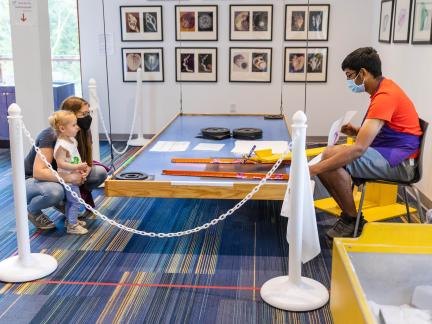
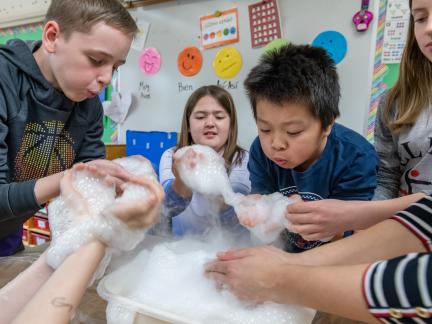
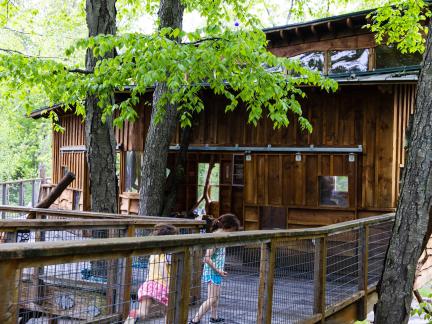
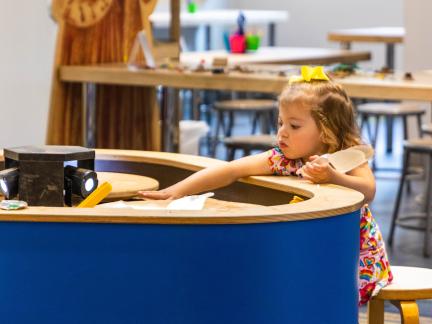
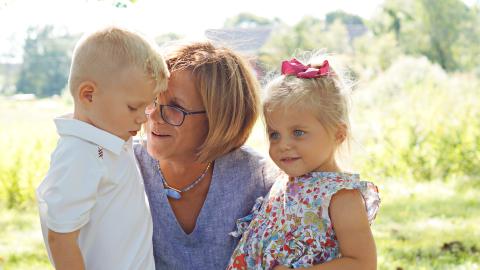
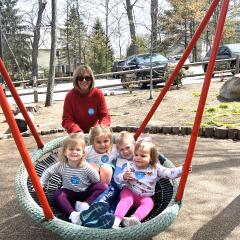
Comments
Add new comment